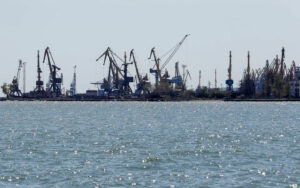A Marcosian reset of Philippine foreign policy

Some Filipino commentators expressed skepticism at presumptive president Ferdinand Marcos, Jr.’s foreign policy. Some even downright question whether he actually has a foreign policy. Such apparently is due to BBM supposedly refraining from attending several debates or media interviews. Apparently, for such commentators, foreign policy should be formulated before a live studio audience.
International observers don’t seem to share the same predilection, with many expressing a seeming level of comfort at the incoming administration’s possible foreign policy mindset. This, of course, presupposes a discernible foreign policy.
For BBM is coming to Malacañang not as a stranger. He’s been there before, albeit under quite different circumstances. The unkind would say he’s coming in with baggage, although the better view is to say he’s coming in with history.
For history is certainly there, again albeit under quite different reasons: his father’s. Glimpses of political thought can be seen in Ferdinand Marcos the Elder’s Today’s Revolution: Democracy and Notes on the New Society. There are those critical of FM: America’s Boy (by James Hamilton-Paterson), some a bit neutral: Romulo (by Carlos and Beth Day Romulo), and those a bit more appreciative: Marcos Foreign Policy (by Benjamin Domingo) and Marcos and the Filipino Military Tradition (by Samuel Tan).
Marcos the Younger hasn’t also been exactly quiet on the matter: there was his work in the Senate, the pronouncements he made during his 2016 run for the vice-presidency, and the select interviews he did in this year’s presidential campaign.
Marcos will also be merely our fourth president with a foreign education and his having read politics, philosophy, and economics in Oxford is all the more important for what he learned outside the classroom than in it. There is a huge world of unspoken difference between a rest of the world education and that of Oxbridge: anyone that went through the latter will go home jammed inside him a sharply profound and (more importantly) utterly self-assured appreciation of country and a cooler eye towards foreign countries.
What appears (or is at least discernible) therefore is a foreign policy attempting to be truly independent: one working primarily within the parameters of Philippine national interest. This means an independent foreign policy that refrains from unnecessarily taking an antagonistic attitude towards our longtime ally the United States nor be embarrassingly subservient to China.
“At the very highest level, Marcos, like every Philippine leader, seeks to maintain his country’s national interests regardless of deepening US-Chinese competition. During the debate, he said: ‘No matter what the superpowers are trying to do, we have to work within the interest of the Philippines. We cannot allow ourselves to be part of the foreign policy of other countries. We have to have our own foreign policy.’ This statement suggests that he envisions Manila as neither wedded to the alliance with Washington nor forging a new partnership with Beijing. Rather, he wants to steer a middle path to navigate intensifying great-power competition. By contrast, Duterte, on his first trip to China not long after his election, famously announced it was ‘time to say goodbye’ to Washington. Despite his political alignment with Duterte, Marcos probably won’t be choosing a side.” (“New Philippine President Marcos, Jr. Likely Won’t Repeat Duterte’s Foreign Policy Mistakes,” Rand Blog, May 2022)
Despite certain comments from (again) local commentators, Philippine leverage and hence importance in the global stage shouldn’t be underestimated. More than four million Filipino-Americans live in the United States, which is also the recipient of significant amounts of electronic, automobile, agricultural, and textile products. The US, in turn, has 300,000 of its citizens residing here (for context, only 230,000 Filipinos reside in the whole of China), is a significant source of foreign investment, and sends substantial trade in semiconductors, cereals, and transport equipment.
But it is its geography where the Philippines still retains its position as a potential player in the world stage: regardless of the supposed shift to ballistic and aerial warfare, our country’s waters still play a huge role in maritime transport and submarine warfare, not to mention commercial trade. Properly viewed, the Philippines could be the doorway to Asia, same as with Great Britain vis-à-vis Europe and a role that Singapore tried but continually fails to assume.
Which leads to the question of what exactly are Philippine interests? BBM would do well to refrain telegraphing the specifics of that, but in general terms our foreign policy fundamentally should be conducted in complete unity with the identity and values of the Philippines, including adherence to inherent rights and the significant role of religious faith in our fundamental institutions.
Or, put another way, our foreign policy should be but the mere extension of our domestic, also recognizing that these are matters strategically, patiently, and deliberately played out in decades. This means an utter emphasis on Philippine sovereignty vis-à-vis foreign countries but also with regard to any domestic entity or issue.
Our treaty and trade arrangements should be reappraised and those being negotiated given more stringent examination. This is simply not the time for new commitments but rather for taking stock and developing internal capabilities and markets.
Finally, even in diplomacy, talk is futile unless one has the muscle and will to back it up. Our foreign policy must be partnered with a strong, robust military. Indeed, increasing defense spending and reviving mandatory military service for all college-age students is ironically a good first step towards a coherent, strategic foreign policy.
Jemy Gatdula is a senior fellow of the Philippine Council for Foreign Relations and a Philippine Judicial Academy law lecturer for constitutional philosophy and jurisprudence
https://www.facebook.com/jigatdula/
Twitter@jemygatdula




